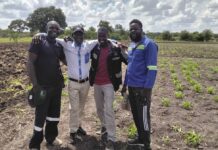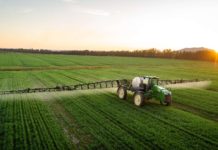By : Refilwe Pico, Communications Officer at Seriti Institute
During the national lockdown, the inception of gardens was a means of survival whereas now, they are a potential means of income. The availability of home gardens reduces pressure on the little financial resources families have available. It creates economic activity within communities and importantly, it proves that there is hope for local producers to enter markets.
Indeed, the arrival of COVID-19 brought with it the reality that many South African families face regarding food insecurity. In a country with high unemployment, the restrictions on movement meant that people could not use alternative means to generate income and fend for themselves – with no reliable source of food, many families endured the grim reality of hunger.
Government’s unfulfilled promises to provide food relief to highly marginalised communities did not help our desperate situation nor strengthen confidence in the government’s response. In as far as the public could adhere to the regulations, and despite the general fear of being infected by the virus, there was an urgency for people to go out and seek an income to have something to eat.
Questions which arise are: “does food relief have a long-term impact in alleviating long-term food insecurity?”, “Should government’s focus not be in developing practical gardening skills in communities?”, “How best can government support local communities in ensuring long-term food security?”, to name a few.
Amid frustrations caused by lack of access to food, families sought out alternatives and other creative means of generating income to survive. Communities looked for resources around them which they had within their grasp and started using these to earn an income.
In Bela-Bela, 20 community members received agroecology training and help setting up food gardens as part of a broader fight to alleviate hunger. After training, participants had to maintain their own gardens and were able to feed their families. The fresh produce from these gardens, which was initially intended for home consumption, ended up yielding good harvests with excess stock being sold to other community members.
In Vhembe, Phillip Bokaba, a previous EPWP employee, lost his job due to COVID-19. He started planting vegetables in his backyard as his main source of nutrition for him and his family. He also, attended the Work. Learn. Grow hands-on agroecology training programme and his garden has grown to the point that he sells his produce to other community members and has plans to expand his garden.
These two cases show that equipping local communities with the necessary skills, tools, and knowledge to establish and maintain a food garden, the implications will be toward strengthening local food production, enhanced food security, and better nutrition.
Home gardens are a great source of fresh, nutritious, and healthy food and give families the ability to become food sovereign, that is resilient. When people have the necessary skills to establish and maintain their gardens, they can improve their general wellbeing!








